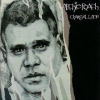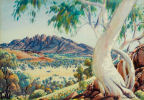Let's take Australia Day to a new level!

 The history of Australia as a nation has been brutal to the humans who lived here first, to the animals and birds, and brutal to the landscape. Australia needs a day to stop and reflect on what has been done, where we are now and where we are going. We cannot fix the problem by continuing to do the same thing that caused it. Current discussion about Australia Day focuses on the way colonisation affected and continues to affect the aboriginal population. In addition to the injustices and atrocities, Australian Aborigines have been, and continue to be, overwhelmed by sheer numbers from elsewhere. The non-Aboriginal population born here is now being overwhelmed in the same way. The fast growing population as a whole has ongoing devastating environmental impacts on this land. It has social impacts too, as it enriches a very few members of the growth lobby, while the rest pay for population growth.
The history of Australia as a nation has been brutal to the humans who lived here first, to the animals and birds, and brutal to the landscape. Australia needs a day to stop and reflect on what has been done, where we are now and where we are going. We cannot fix the problem by continuing to do the same thing that caused it. Current discussion about Australia Day focuses on the way colonisation affected and continues to affect the aboriginal population. In addition to the injustices and atrocities, Australian Aborigines have been, and continue to be, overwhelmed by sheer numbers from elsewhere. The non-Aboriginal population born here is now being overwhelmed in the same way. The fast growing population as a whole has ongoing devastating environmental impacts on this land. It has social impacts too, as it enriches a very few members of the growth lobby, while the rest pay for population growth.
In the run-up to Jan 26th, the anniversary of the arrival of the "First Fleet" into Port Jackson from Botany Bay under the command of Commodore Arthur Phillip (who had brought them from Portsmouth some 8 months earlier ) there has been much discussion regarding the appropriateness of this date as Australia's national day of celebration. It is not the day that Australia became a nation, it's not the day that the British first landed on the continent. It was the day the British flag was raised at Sydney Cove, a day that marks the beginning of massive colonisation from Britain to the Pacific Island of Australia.

The colonisation begun then is a fait accompli. It is irreversible. The hapless convicts who were brought to Australia have made themselves part of the place.Their descendants cannot go back and live in Britain as their forbears are too far removed to give them any rights of abode.
The sequelae of the Port Jackson landing amounts to an ongoing, unceasing chain of migration from not only Britain but other parts of the world, unceremoniously taking over the land of the previous human custodians
Importations of exotic animals on the scale of multi giant cruise ships have also followed - horses, deer, foxes, cattle, sheep, goats, pigs camels, dogs , cats all loaded onto the finely balanced and well adapted fauna of the continent. They now live here in their millions.These animals are by no means ideally suited to Australian soils and climate . Foxes were released so that the English gentry could resume one of their bloody pleasures,- fox hunting. Goats and deer have escaped into the wild making tracks throughout the fragile landscape with their hard hooves. Camels and horses were brought in as workers and as transport as there was no equivalent native animal. -indigenous (or exotic ) birds were brought in despite a resident cornucopia of marvellous native and migratory birds.
The vegetation of the continent took and still takes a tremendous beating. The state of Victoria has lost most of its forest cover. Grasslands are being swamped with housing to the west of Melbourne. Exotic plants have been introduced and have taken over as weeds. The biosphere of the continent of Australia- the most diverse on Earth at the time of European arrival is only a shadow of its former glory. Now we are watching the remainder of it disappear.
The humans who inhabited the continent of Australia for the previous 60,000 years in varying degrees of density from coast to coast and across the desert had learned to exist within the constraints of the land. On arrival, the first explorers and settlers found people leading their lives in what appeared to harmony with nature. The land was abundant with wildlife. The people were self sufficient. They were not waiting with baited breath for some sort of salvation through invasion. Following "our" arrival their lives would never be the same again. They were rounded up and killed or displaced at the convenience of the invaders. Until 1967 they were considered under the constitution as part of the Australian fauna. They now have status, land rights and even their own TV stations but I can see their relatively newly found voices being drowned out by the noise of the competing multicultural groups within Australia. It seems that these groups are not so much interested in hearing one another but in being heard. What space in their agendas will the be afforded the First People of Australia?
The groups of audience comprised families and groups of friends, the usual multi -cultural mix of English-speaking Australians and other ethnic groups. The Chinese-speaking group in front of us paid little attention to the singer's music and even less to his introductory narratives. What relevance would it have to them? Indeed, what relevance could it have for the Manchester-accented couple to our right who were commenting on real-estate-ads on their phones? I could just hear Archie over the barking dogs, the clatter of camp furniture prematurely packed up, and the loud good-byes as people parted company, while Archie continued to sing on the stage. I struggled to see Archie as our neighbours in front stood up for a long chat before leaving, obstructing even our view of the singer.
Where does this leave us with respect to Australia Day? The history of Australia as a nation has been brutal to the humans who lived here first, to the animals and birds, and brutal to the landscape. Australia needs a day to stop and reflect on what has been done, where we are now and where we are going. We cannot fix the problem by continuing to do the same thing that caused it. Current discussion about Australia Day focuses on the way colonisation affected and continues to affect the aboriginal population. In addition to the injustices and atrocities, Australian Aborigines have been, and continue to be, overwhelmed by sheer numbers from elsewhere. The non-Aboriginal population born here is now being overwhelmed in the same way. The fast growing population as a whole has ongoing devastating environmental impacts on this land. It has social impacts too, as it enriches a very few members of the growth lobby, while the rest pay for population growth.
We cannot alter our course without reflection. Yet we must change our course and soon. I suggest we keep the date, January 26th, as a marker of the beginning of immense, irreversible change. But let's be grown-up about it! Rather than seeing it as a day of celebration and beer, let's see it as a day of reflection and re-assessment of our situation and our direction.
If we could look at things more objectively, historically, critically and realistically, then all parts of our society could participate in trying to set the right course, one which will be the best possible for all on board. Make it a day to reflect on where we are going, because if there is a brick wall in the way,and we do not change direction, we will certainly crash into it. A lot of damage has been done and we need to salvage what we can. Changing the date of Australia Day achieves little in this respect. Let's take the old Australia Day to a new level and try to get the public thinking about the next 230 years as well as the 230 years since that landing at Port Jackson!

Recent comments